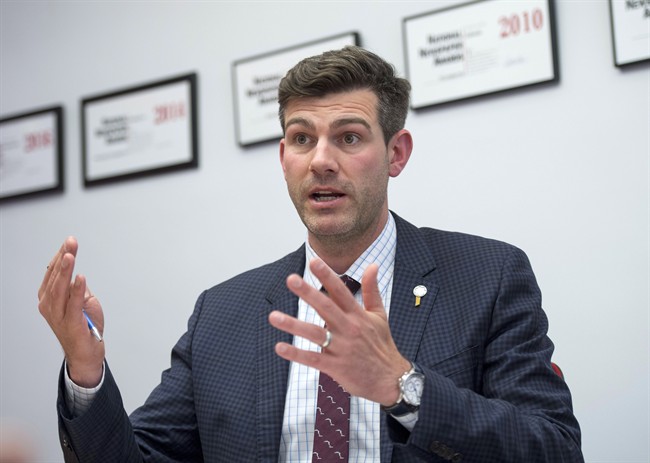The Federation of Canadian Municipalities’ annual conference is being held this week in Halifax and mayors are putting together a wish list for the federal government.

On Thursday morning, Edmonton Mayor Don Iveson said the wish list includes funding for affordable housing, climate change and new revenue tools.
Iveson, who was re-elected as chair of the Big City Mayors Caucus, said “strategic discussions” were taking place Thursday that would shape how the mayors approach the 2019 federal election.
“We still have a fairly brittle structure in this country that doesn’t set municipalities and local governments and communities up for success,” he said.
“When we talk about city building being nation building, really what it is is a lot of solutions at the local level that may vary from one region to another, it may vary from one city to another, but that adds up to national action, national results, national solutions.”
READ MORE: Big city mayors meet in Halifax, discuss wish list for affordable housing and climate change
The Edmonton mayor said innovative solutions in areas such as climate change, transit and housing are being developed in Canadian cities but greater support from the federal government is needed to develop those ideas.
“We’re cognizant that these things actually need to hit the ground where the needs are real and urgent in order for us to be able to celebrate them as successes,” Iveson said.
- Posters promoting ‘Steal From Loblaws Day’ are circulating. How did we get here?
- Canadian food banks are on the brink: ‘This is not a sustainable situation’
- Is home ownership only for the rich now? 80% say yes in new poll
- Investing tax refunds is low priority for Canadians amid high cost of living: poll
“On housing, the feedback from mayors has been that we’re still waiting for those impacts and those results to reach some of the most vulnerable Canadians whose needs are quite acute in the largest cities.”
Last year, the Trudeau government promised $40 billion over 10 years as part of its National Housing Strategy, but the plan relies heavily on provinces and territories to match funds in order for federal dollars to flow. Additionally, much of the money won’t be spent until after the 2019 election.
Iveson said although Ottawa has “stemmed the bleeding” in recent years, the lack of funding over decades has created an acute backlog of social housing.
“The real backlog is the growth of the inventory. We need to see tens of thousands of new units built,” Iveson said.
“Cities have been working hard to innovate and partner creatively with the private sector and tread way beyond our jurisdiction with the respect of property tax dollars to try to solve the housing crisis in our major cities.
“We do so partly with an expectation that the federal government would ramp up its investment and that’s been slower than we had hoped it would be. It is coming. We trust that it will come, but it’s been frustrating that the housing crisis, particularly in our largest cities, continues to be a sore spot.”
WATCH: Halifax Mayor Mike Savage stops by to talk more about the Federation of Canadian Municipalities Conference happening in town this week.

In April, Edmonton city council zeroed in on a policy that would see 916 units of “permanent supportive housing” built over the next six years, designed to prepare Edmonton for when both the provincial and federal governments release announced funding.
The Federation of Canadian Municipalities’ annual conference brings together representatives from Canada’s 22 biggest cities, providing an opportunity for policy development on a variety of issues impacting cities.
— With files from The Canadian Press


Comments